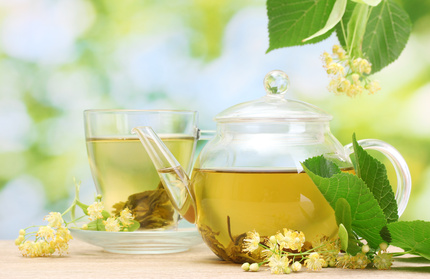by
Stepy —
September 28, 2018
- Chamomile tea is popular for its relaxing nature and is often used as a remedy for common cold and flu. It has a way of soothing the soul and warming your body during rough times. There are two types of chamomile: German and Roman. They both have benefits, but German kind is considered more potent and has been researched extensively. This tea has a wide range of benefits, and is essential addition to your pantry.
- Let’s look at the health benefits of chamomile tea:
-
- Cancer prevention:
- There has been some evaluation of chamomile as an anti-cancer agent. Most of the research conducted so far has been based on a flavonoid in chamomile called apigenin, which according to a Cleveland study, has been shown to possess remarkable anti-inflammatory, antioxidant and anti-carcinogenic properties. Another recent study shows that chamomile extracts keep normal cells in tact, and inhibit the growth of cancer cells.
- Aids with eczema:
- Chamomile extracts have anti-inflammatory properties, and are often used in creams and ointments to help relieve skin ailments. There is evidence showing when treating eczema, creams made with chamomile are significantly superior to more common hydrocortisone creams.
- Gastrointestinal help:
- Many of chamomile’s benefits have to do with soothing in one way or another. According to the National Institutes of Health, “Chamomile is used traditionally for numerous gastrointestinal conditions, including digestive disorders, “spasm” or colic, upset stomach, flatulence (gas), ulcers, and gastrointestinal irritation.” Chamomile helps with gastrointestinal conditions by getting rid of excess gas, soothing the stomach, and relaxing the muscles in the intestines.
- Heart health:
- Chamomile tea is good for the heart, because of antioxidants called flavonoids. Antioxidants protect the body from the effects of oxidative stress, which may help strengthen the immune system and ward off diseases. Dr. Andrew Weil explains, “oxidative stress is the total burden placed on organisms by the constant production of free radicals in the normal course of metabolism plus whatever other pressures the environment brings to bear (natural and artificial radiation, toxins in air, food and water; and miscellaneous sources of oxidizing activity, such as tobacco smoke).” The effects of oxidative stress are often linked to chronic illnesses such as heart disease and many types of cancers.
- Immune system:
- There is a reason that people often reach for chamomile tea when they are feeling under the weather. Chamomile tea has properties that help boost the immune system. A study published by the Journal of Agricultural and Food Chemistry shows strong evidence to support chamomile’s immune boosting potential. The study showed that participants who drank chamomile tea had an increase in the amount of hippurate in their system. Hippurate is one of the substances that helps bolster the immune system and fight bacteria that can cause colds and other ailments.
- Insomnia:
- Many people use chamomile tea to help relax their nerves and aid in sleep. These benefits of chamomile are still unknown. A 2011 study showed that chamomile did help with daytime functioning, but there were mixed results when it came to sleep benefits. Therefore, more research needs to be performed before chamomile can be diagnosed as treatment for insomnia.
- For passionflower tea and stress relief.
- For the health benefits of lavender tea.
- Note: None of the information in our website is intended to diagnose, treat, cure or prevent any illness or disease. The content on our website is for educational purposes only.
- REFERENCES:
- 1. Gupta, Sanjay, MD. “Chamomile: A Herbal Medicine of the past with Bright Future.” PMC. U.S. National Library of Medicine, 01 Nov. 2010. Web. 7 Aug. 2013.
- 2. “A Metabonomic Strategy for the Detection of the Metabolic Effects of Chamomile.” National Center for Biotechnology Information. U.S. National Library of Medicine, n.d. Web. 07 Aug. 2013.
- 3. Gupta, Sanjay, MD. “Antiproliferative and Apoptotic Effects of Chamomile Extract in Various Human Cancer Cells.” National Center for Biotechnology Information. U.S. National Library of Medicine, n.d. Web. 07 Aug. 2013.
- 4. “Proof of Efficacy of Kamillosan(R) Cream in Atopic Eczema.” National Center for Biotechnology Information. U.S. National Library of Medicine, n.d. Web. 07 Aug. 2013.
- 5. “Apigenin and Cancer Chemoprevention: Progress, Potential and Promise (review).” National Center for Biotechnology Information. U.S. National Library of Medicine, n.d. Web. 7 Aug. 2013.
- 6. Zick, Suzanna M., Benjamin D. Wright, Ananda Sen, and J. Todd Arnedt. “Preliminary Examination of the Efficacy and Safety of a Standardized Chamomile Extract for Chronic Primary Insomnia.” National Center for Biotechnology Information. U.S. National Library of Medicine, 22 Sept. 2011. Web. 07 Aug. 2013.
-


















